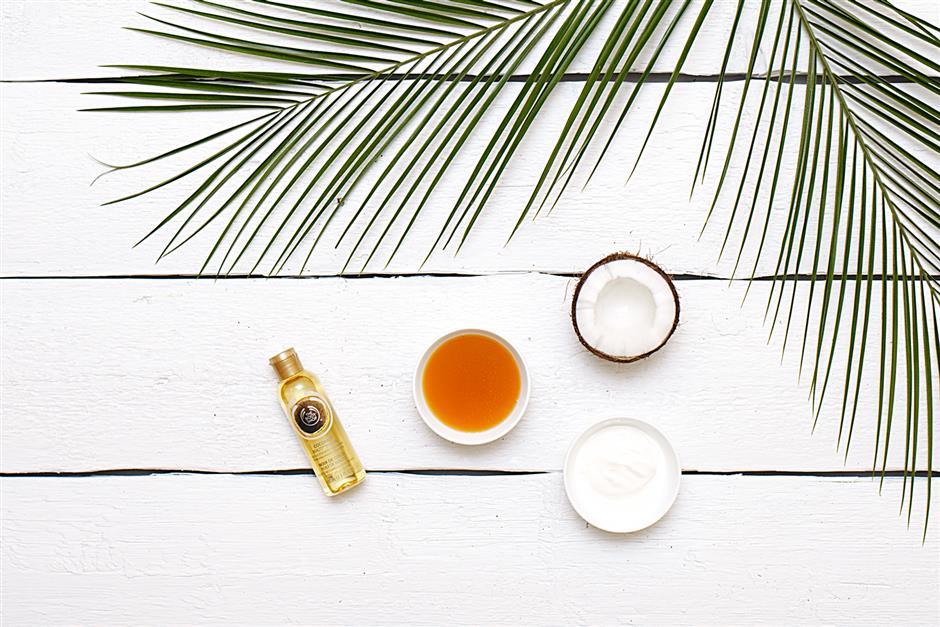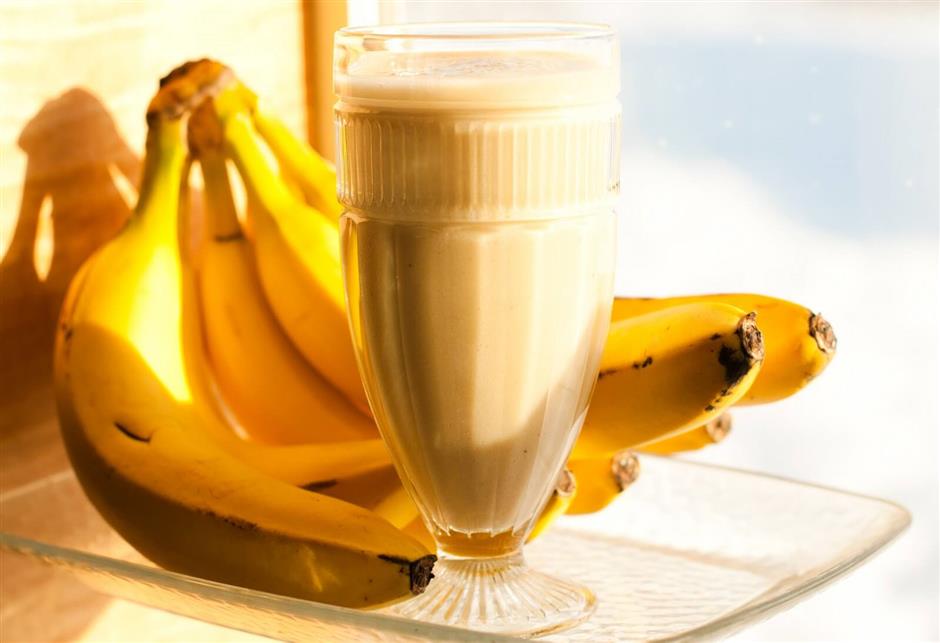Cracking into the claims surrounding coconut oil

COCONUT oil is found in a wide range of food, beauty and healthcare products. Touted for its versatility, do the many benefits ascribed to coconut oil hold up to scrutiny?
According to its boosters, coconut is more than just a fruit. Coconut oil is listed as an ingredient in everything from hair masks and massage oils to makeup remover, shaving cream and lip balms. It contains no parabens, phthalates, sulfates or other harmful chemicals. Some people even use it for oil pulling, an ancient oral hygiene practice that involves swishing oil around your mouth.
Coconut oil is also becoming an increasingly popular substitute for olive oil, thanks to its pleasant scent and alleged health benefits.
According to Kris Gunnars, founder of Authority Nutrition, a website run by a group of experts in nutrition and medicine, consuming coconut oil can help burn fat and thus lead to weight loss. The medium-chain triglycerides (MCTs) in the oil have been shown to increase energy consumption over a period of 24 hours by as much as 5 percent in one study. Another study showed that 20 obese men reduced their waist circumference by an average of 2.86 centimeters after four weeks of consuming 30ml (two tablespoons) of coconut oil every day. Exercising or restricted calorie intake were not used in the study.
Yet, one tablespoon of coconut oil is about 117 calories. Franziska Spritzler, a registered dietitian and certified diabetes educator from the US, argues that coconut oil produces only modest results in terms of fat reduction or metabolism boosting.
Almost 90 percent of coconut oil is saturated fat, much higher than most other oils, even butter (about 64 percent) and lard (40 percent). And we have been told that saturate fat is bad for our hearts for decades. Is this seriously true with coconut oil?
Adda Bjanardottir, a licensed nutritionist with a Master’s degree in Nutrition, concluded in her article “5 studies on saturated fat — time to retire the myth?” that ‘saturated fat has no significant association with heart disease.’ However, people with medical conditions such as cholesterol problems should be careful about their intake of saturated fat.
It’s strongly suggested to compare the pros and cons of using coconut oil before you start consuming it yourself. In any case, coconut oil for external use in beauty products is still considered safe.
Q: Should I replace my usual cooking oil with coconut oil?
A: Coconut oil has an amazing flavor and scent. When it comes to Thai dishes, cooking with coconut oil is essential. At room temperature, coconut oil is solid, which makes it a great alternative to lard and butter in recipes requiring a solid source of fat. However, replacing your regular vegetable oil with coconut oil is not recommended by everyone. “I don’t think coconut oil is as healthy as vegetable oils like olive oil and soybean oil, which are mainly unsaturated fat and therefore both lower LDL (bad cholesterol) and increase HDL (good cholesterol),” explained Walter C. Willett with a Master’s degree from Harvard School of Public Health. However, it’s still okay to experiment with coconut oil in cooking and baking as a flavor enhancers.
Q: What’s the difference between virgin coconut oil and refined coconut oil?
A: Refined coconut oil has a milder scent and flavor than virgin coconut oil as the latter is extracted directly from fresh coconut meat. Although both are fine to be used for baking and cooking, refined oil has a higher smoking point. So it is more suitable for high temperature cooking. Both oils contain roughly 63 percent medium-chain triglycerides, including 50 percent lauric acid, the beneficial fatty-acid. However, if you decide to use refined coconut oil, avoid chemical extracted ones.

Drink up and get a flatter tummy!
Here is tested meal-replacement recipe for a yoghurt drink with lots of goodness, including coconut oil.
Ingredients:
1 banana
1 small orange
1/2 glass of low-fat or fat-free Greek yoghurt
1 tablespoon coconut oil
1/4 tablespoon ginger powder
2 tablespoons flax seeds or chia seeds (optional)
Steps:
1. Put all ingredients in a blender
2. Blend for a couple of minutes.
3. Pour in a glass and enjoy!















